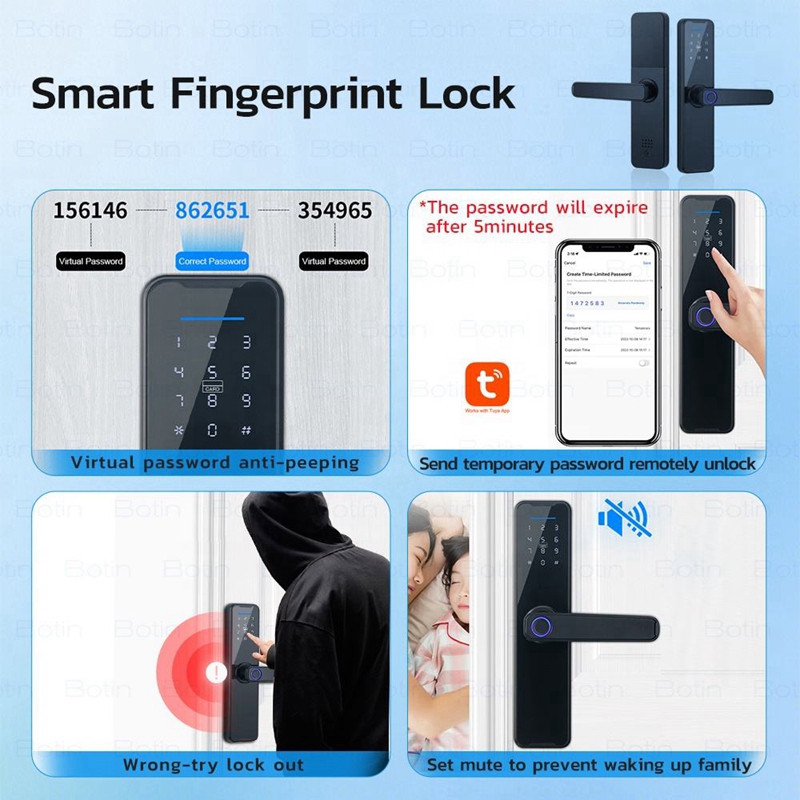As the world embraces the era of interconnected living, smart home technology has witnessed a surge in popularity. Among these advancements, security smart locks have emerged as a prominent innovation, offering unparalleled convenience and ease of use. Yet, the allure of convenience raises valid concerns about security and privacy. This article delves into the reliability of home indoor smart locks with a focus on their security and privacy features, illuminating potential risks and presenting effective solutions.
Smart Lock Security
Enhanced security stands as the cornerstone of smart door locks’ appeal. Unlike traditional locks, which may be vulnerable to picking and unauthorized access, security home smart locks utilize sophisticated encryption protocols and authentication mechanisms. The ability to control these locks remotely via smartphones empowers homeowners with real-time monitoring and access management.
However, despite these advancements, no system is entirely invulnerable. Like all technologies, security door locks for homes may be susceptible to exploits by hackers. Weak passwords and outdated firmware, for instance, can expose the system to cyber-attacks. To bolster smart lock security, users should regularly update their firmware, employ strong and unique passwords, and opt for multi-factor authentication when available.
Smart Lock Privacy
While smart locks for home bring unmatched convenience, concerns about user privacy linger. Certain smart lock models integrate with other smart home devices, collecting data to optimize user experiences. This data could encompass entry logs, usage patterns, and even location information.
To allay privacy concerns, manufacturers must embrace transparency regarding data collection practices and provide explicit privacy policies. Users should retain control over the data they share and be well-informed about how their information will be used. Regular data audits and anonymization processes further protect individual identities.
Potential Risks and Solutions
Despite the strides in smart lock technology, inherent risks remain. Chief among them is the potential for remote hacking, where attackers exploit vulnerabilities to gain unauthorized access. Vigilant monitoring and timely updates are paramount in mitigating this risk.
Physical theft of smartphones or devices controlling smart locks represents another threat. Unauthorized users could surreptitiously manipulate the locks in such cases. To counter this, device encryption, biometric authentication, or geofencing integration can introduce an extra layer of security.
In conclusion, smart locks have revolutionized home security, offering convenience and ingenuity. While their security and privacy features have seen notable improvements, no technology is entirely impervious to risks. To ensure the dependability of smart locks, users must remain well-informed about updates, employ robust security practices, and demand transparency from manufacturers. By proactively addressing potential vulnerabilities, we can embrace the advantages of smart locks without compromising safety and privacy. A smarter and more secure home awaits those who embrace this quest for reliability.
Post time: Aug-04-2023





